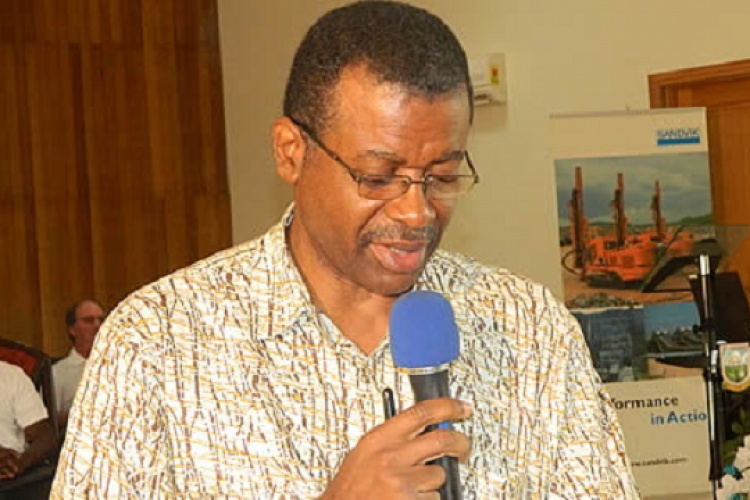The government has released GH¢500,000 to the University of Mines and Technology (UMaT), Tarkwa, to start training artisanal small-scale miners and other stakeholders in the mining industry.
The training would commence from Monday, July 24, and would be coordinated by the Ministerial Small-scale Mining Office.
It is expected that about 500,000 miners and other stakeholders would receive various livelihoods and management training for the next five years and trainees would be awarded certificates.
Professor Jerry Samuel Yaw Kuma, the Vice Chancellor of UMaT, made the disclosure at the National Stakeholders’ Workshop on the Multilateral Mining Integrated Project (MMIP) held in Tarkwa in the Western Region.
The event afforded the stakeholders the opportunity to validate the proposed MMIP document and made fresh recommendations to enhance the programme.
The Vice Chancellor said the University was ready to partner government in conducting relevant training for all stakeholders for sustainable national development.
He said the University had been involved in research to find solution to illegal mining challenges over the years and would continue to play a prominent role in that regard.
He said the University believed that part of the strategy to end the phenomenon was through education, enforcement of the mining laws, engagement and empowerment of miners and attitudinal change.
Prof. Kuma said the University had conducted a lot of research on artisanal small-scale mining with the support of national and international agencies and that some innovative technologies had been evolved like Direct Smocking Technique popularly known as “Sikabokyiaâ€, which had been approved by the United Nations Environment Programme as one of the best gold processing methods.
According to him, the University was strategically positioned to assist the mining sector and other allied industry to find a lasting solution to the menace.
He said it had developed various training programmes for artisanal small-scale miners, the media, the mining communities and other stakeholders, adding that 500 miners were trained in 2013 with support from the Australian Government.
“We suggest that a comprehensive mining policy should be formulated to regulate the sector and should include re-organising the small-scale mining unit at the Minerals Commission and should be well resourced to enable them to carry their mandate effectively,†he said.
In addition, he said a template should be developed for reporting all small-scale mining activities while all mining equipment entering the country should be registered with tracking devices to monitor their movements and usage.
Prof. Kuma noted that the issue of illegal mining was a hydra-headed challenge thus, causing unbridled destruction to the environment including the pollution of water bodies and degradation of the vegetation and farmlands.
He said illegal mining, otherwise known as “galamsey†required collective and concerted efforts of all stakeholders in a sustained and continuous manner to halt the phenomenon.
The Vice Chancellor commended President Akufo-Addo’s unwavering commitment and determination to end the menace once and for all, adding that the recent moratorium on all forms of small-scale mining in the country was yielding positive results with improvement in the turbidity of water bodies.
The five-year project was developed by the government through the Ministry of Lands and Natural Resources, the Minerals Commission and the JFK Consultants.
It has five components namely; reviewing and enforcing legal and regulatory regime, reclamation of degraded lands, dredged silted estuaries and waterways and free lands for agribusiness.
The rest include; the implementation of social intervention to facilitate livelihoods creation in mining communities, adapt appropriate technology to ensure efficient mining, processing, environmental and monitoring activities as well as capacity building of artisanal small-scale miners, regulatory institutions and project management team and communications.
The government and other development partners would spend about GHc500 million (US$150 million) to successfully implement the MMIP.
The syndicate group discussions on the project made various suggestions to enhance the MMIP working document.
Â
Â
Â
Credit: GNA
Â
Â





